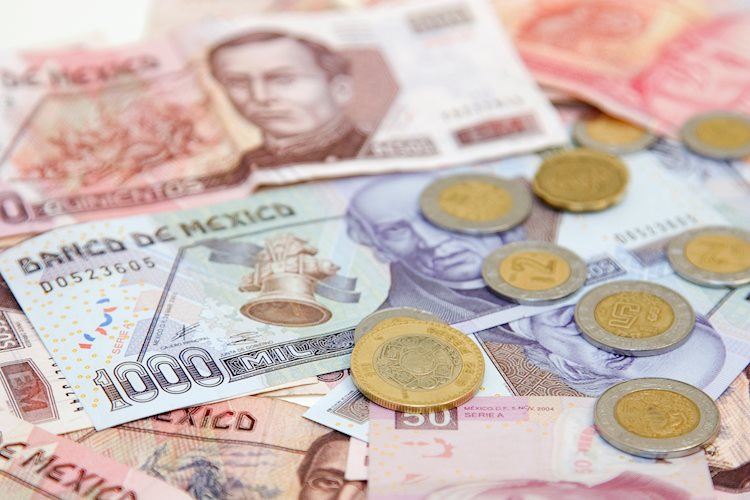Of Eleftheria Kourtali
The new coronavirus mutation from South Africa caused shock and awe in the markets, strongly reminiscent of the days of February 2020, when the pandemic broke out for the first time, literally turning it into “black” on Friday (Black Friday) in the international stock markets. The alarm that this new development has caused in Europe and the rest of the world, leading many countries to effectively “close” their borders to travelers from some African countries, at a time when it was not known whether this highly contagious mutation has the power to bypass vaccines, sent seismic waves to the stock markets and to falls that exceeded 3% -4%, leading to a disorderly flight of investors and their mass influx into the “safe haven” of bonds. Little is known about the variant, but scientists said it has an unusual combination of mutations, which may be able to evade immune responses and could be more contagious.
Immediate and abrupt turn away from risk was the most logical “solution” for the portfolios, until the landscape was clarified, as analysts note. “First you shoot and ask questions later, when this kind of news comes out,” they note, estimating that in the short term the pressure will prevail, reducing the hopes for a year-end rally in the stock markets, but then calm is expected to come, as things now is very different from what it was in other “episodes” of new mutations in the past, due to the increase in the rate of vaccination of the population. It is enough, of course, that the existing vaccines continue to be powerful “weapons” against the pandemic. “There is strong concern about the new mutation, but the good news is that many countries are acting quickly to limit its spread. As people experience Delta mutation, tools are now available to address such risks,” he said. Justin Tag, United First Partners analyst. For his part, CFRA Research strategic analyst Sam Stoval points out that, as Wall Street and other indicators have recently reached new all-time highs, this new development could give investors reasons to try to secure their profits, at least in the short term, if not for the rest of the year.
What is certain, however, is that if the restrictive measures are tightened and lasted, the effects on the recovery of economies will be obvious, with international companies leading to a downgrade of their growth estimates in many countries. “The economic recovery has been quite impressive and the only thing that could completely reverse it would be a more dangerous mutation,” said Ryan Detick, a strategic analyst at LPL Financial. After all, all the rating agencies &S & P, Moody’s, Fitch and DBRS – have warned through their analysis that a new mutation and a new outbreak of the pandemic is one of the biggest risks to the prospects of economies and recovery.
Capital Economics points out that the global economic landscape is very different now than in previous waves of the virus. Supply chains are already “stretched” and an increase in spending on pandemic-related goods or port closures will exacerbate existing supply pressures and add upward pressure on goods inflation. Similarly, a new, more dangerous wave of the pandemic could push some workers to leave the workforce temporarily and prevent others from returning, exacerbating current labor shortages.
All this, he adds, will complicate the policy response. The threat of a new, more serious mutation in the virus may be the reason for central banks to postpone plans to raise interest rates until the picture becomes clearer. The key dates are December 15, when the Fed meets, and December 16, when many central banks meet, including the Bank of England and the ECB. But if a new wave does not cause widespread and significant damage to economic activity, it may not prevent some central banks from raising interest rates next year.
In terms of markets, as Capital Economics points out, risky assets such as stocks and bond yields plunged on Friday. The sectors and countries most exposed to the pandemic (tourism, energy, etc.) have been hit hardest by the previous waves of COVID-19 and the house expects these patterns to persist in the short term as investors assimilate the effects. new mutation.
The new COVID-19 mutation will temporarily shake up financial markets, but concerns will be allayed quickly, predicts Nigel Green of the deVere Group, CEO of one of the largest independent financial advisors and asset management organizations. Experts are expected to determine if the new mutation is more contagious or more deadly than the previous ones. “The fact that a new executive has been discovered and that at this stage we know little about it has caused turmoil in the markets, which hate uncertainty,” he said. He continued: “This turmoil is likely to be temporary, with markets still bullish for the time being.”
Global stocks have jumped 16% this year, with investors focusing on the post-pandemic economic recovery. They have largely outgrown the Delta mutation, which caused a mini-wave of liquidations on the market this summer, and it is very likely that they will now do the same with the new mutation, according to Green. This is because, as Delta has shown, mutations are now expected and we have more plans for how to deal with them. “Global financial markets are expected to focus on other pressing issues, including high supply-side inflation bottlenecks and the possibility of a faster exit from the extremely loose monetary environment.” “Markets will fluctuate temporarily due to the uncertainty of this new COVID mutation, but they will remain bullish and will focus heavily on other issues,” concludes the CEO of deVere.
.
I am Sophia william, author of World Stock Market. I have a degree in journalism from the University of Missouri and I have worked as a reporter for several news websites. I have a passion for writing and informing people about the latest news and events happening in the world. I strive to be accurate and unbiased in my reporting, and I hope to provide readers with valuable information that they can use to make informed decisions.






.jpg)